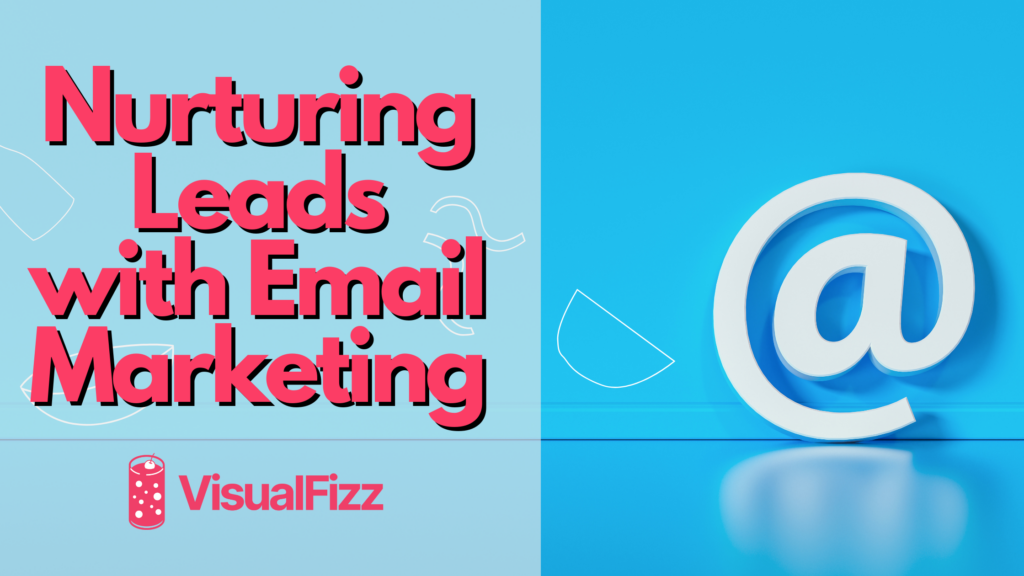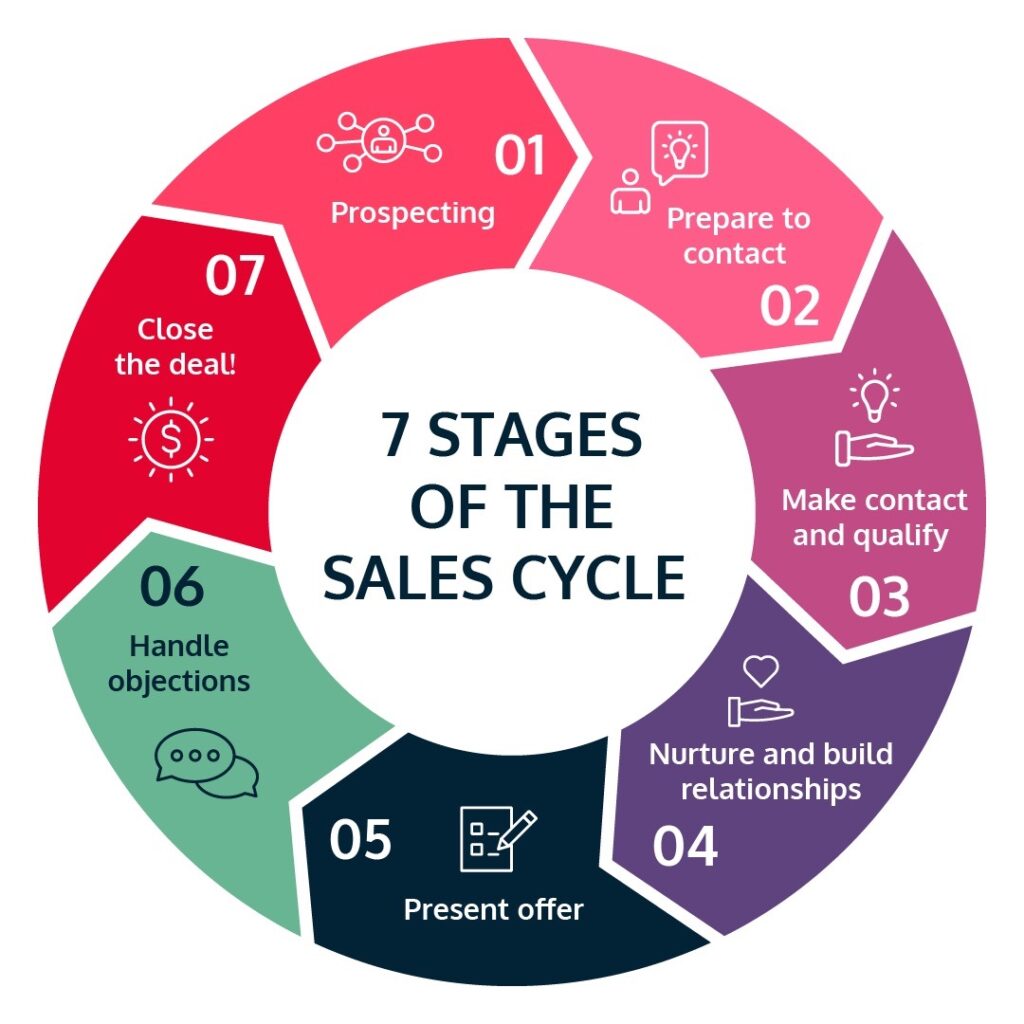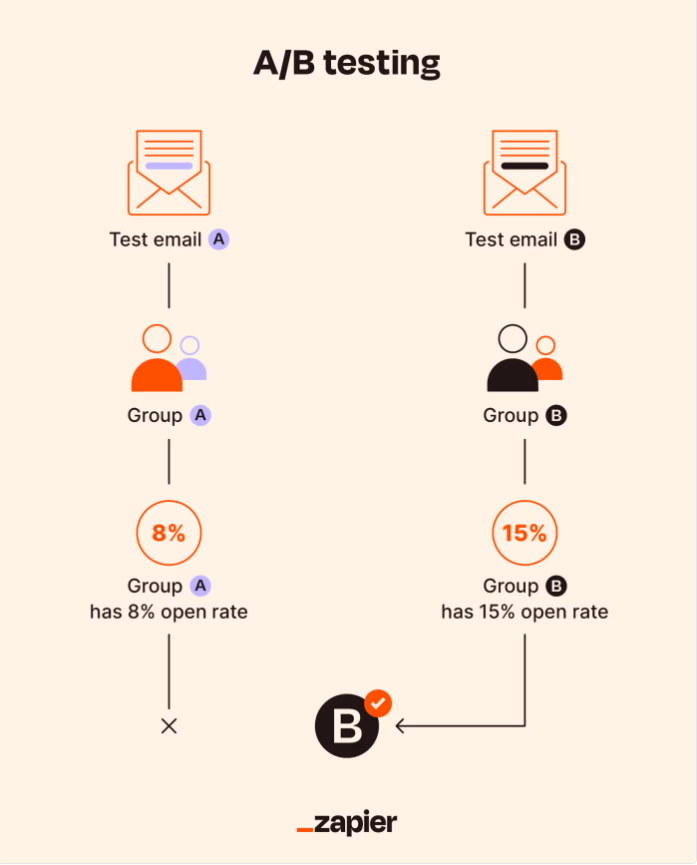
Email marketing is a powerful tool for nurturing leads in a competitive online world. By sending personalized emails, you build lasting relationships with your prospects, increasing the likelihood of conversion and sales.
With almost 4.5 billion daily email users worldwide, brands utilizing email marketing will have a significant advantage over those who don’t.
This article explores the fundamentals of lead nurturing, why it’s essential, how to leverage email marketing to connect with leads, and how to optimize your campaigns for success.
What Is Lead Nurturing?
Lead nurturing is building and maintaining professional relationships with new and existing customers, starting from the marketing phase and continuing through every stage of the sales funnel. The ultimate goal is to earn their business when they’re ready to engage.
To nurture leads successfully, marketers need to anticipate the needs of prospects—even when they’re not quite ready to make a purchase. Email content should be tailored to who the lead is and where they are in their buying journey.
While email is one of the most effective channels for lead nurturing, social media, content marketing, and even sales calls can play a role too. However, email marketing stands out for its ability to personalize, automate, and consistently engage with leads.
Why You Need a Lead Magnet
A successful email lead nurturing campaign requires a strong lead magnet—something of value that entices potential customers to give you their contact information. This could be anything from a discount code to a free guide or downloadable resource. The goal is to provide immediate value in exchange for an email address, allowing you to begin nurturing that lead through targeted email campaigns.
Benefits Of Nurturing Leads
Enhanced customer experiences
Sending personalized emails that address your prospects by name or speak directly to their pain points can significantly enhance their experience with your brand. Personalized communication builds trust, strengthens relationships, and leads to increased engagement.
Increase brand awareness
Today’s consumers spend more time than ever researching their options online before making a purchase. Lead nurturing helps ensure that your brand stays top of mind while they explore.
For example, a customer browsing for a new pair of sports shoes might visit your website, sign up for your email list, but not make an immediate purchase. Without lead nurturing, they might forget your brand while continuing to research.
With a nurturing campaign, you can remind them of your offerings through personalized promotions, product updates, and content that addresses their specific needs.
By consistently nurturing your leads, you also increase the likelihood of generating referrals. Engaged and satisfied prospects are more likely to recommend your brand to others.
In fact, email marketing can play a pivotal role in encouraging referrals by building trust and staying connected with your audience. If your emails provide valuable content and a seamless experience, you increase the chances that leads will share your brand with their network.
For more ideas on driving referrals through your digital strategy, check out these 5 ways to increase your online referrals.
Shortened sales cycle
Shoppers today are taking longer to make purchase decisions, but nurturing leads can help shorten the process. A Market2Lead study found that nurtured leads have a 23% shorter sales cycle, meaning they convert into buyers more quickly than non-nurtured leads.

(Image Source: Ebsta)
Increases sales and ROI
Some of the best lead nurture campaigns generate 50% more sales-ready shoppers at a 33% lower cost. This is because nurturing builds trust and guides prospects through the buyer’s journey, motivating them to make a purchase.
By focusing on the most qualified leads, you increase conversions and achieve better ROI.
5 Tips For Nurturing Your Leads Through Email Marketing
Once you have a database of email addresses from existing and potential leads, it’s time to begin nurturing them so they convert.
The goal is to build that relationship, position your brand as an industry expert, and continuously be in front of them without being annoying or causing spam. Once you’ve built a relationship, you can transition into the selling phase of your campaign.
Unfortunately, 80% of new leads never convert into sales, so it’s time for marketers to learn more about how to nurture their leads, specifically through email marketing.
Here are five tips for nurturing your leads through email marketing:
1. Personalize your emails
Customers want a unique experience when they interact with a brand. In fact, 74% of customers become frustrated when an email isn’t personalized, and 63% said they never respond to non-personalized emails.
Personalize your emails as if you’re writing directly to one person. Include the recipient’s name, acknowledge their interests or past behavior, and send relevant offers that cater to their needs. With advanced email marketing platforms, you can segment your audience based on demographics, behavior, or purchase history, ensuring each email feels tailor-made.
2. Send newsletters
You could create a newsletter that you automatically send to all your prospects weekly, monthly, or quarterly.
Newsletters are a great way to stay connected with leads over time. Whether you send them weekly, monthly, or quarterly, newsletters help keep your audience informed about your business, product updates, success stories, and solutions to their problems.
It’s also a great way to introduce new leads to your brand, especially if they signed up via a lead magnet and aren’t yet familiar with your offerings.
3. Stay consistent with your branding
Your lead nurturing emails are an extension of your overall brand, so consistency is key. Ensure that the design, tone, and messaging in your emails align with your brand’s other channels—whether it’s your website, app, or social media platforms.
That said, email provides an opportunity to showcase your brand’s personality. While maintaining professionalism, don’t be afraid to add a bit of charm or humor to your messages. This human touch can help you stand out and build stronger connections with your audience.
4. Focus on one key topic per email
When it comes to email marketing, simplicity is often more effective. Rather than overwhelming your audience with multiple messages, focus on one key topic per email. This makes the content easier to digest and increases the chances that the recipient will take action.
By concentrating on a single subject, you can dive deeper into it, providing value and building your brand’s credibility.
5. Test your emails
To understand what resonates best with your audience, A/B testing is essential. Test various elements of your emails, such as subject lines, CTAs, content length, or send times. Just be sure to test one variable at a time to gather clear and actionable insights.
Consider A/B testing your email marketing campaigns and gathering the following key metrics:
- Open rates. Determined by the subject line.
- Click-through rates. Determined by the call to action (CTA) in the email.
- Conversion rates. Determined by your offer, landing page, and how well you’ve conveyed your message in the emails.
A/B test different topic ideas, subject lines, content, calls-to-action, and even the timing and frequency of your emails. Always test just one variable at a time to get the most accurate results.
For example, you might test using a subject line with emojis for half your audience, while the other half receives a more traditional subject line. Monitoring metrics like open rates, click-through rates, and conversion rates will give you valuable feedback on what’s working and where to improve.

(Image Source: Zapier)
Wrapping Up
Effective lead nurturing saves time and resources by focusing on the most qualified leads and motivating them to become customers. By following these tips, your email marketing campaign can take a customer from their initial interest to a final conversion through communication and connection.
Lead nurturing is about more than just sending emails—it’s about building relationships. By focusing on personalized communication, consistent branding, and clear messaging, you can guide your leads through the buying process and turn them into loyal customers. Following these email marketing tips will help develop campaigns that nurture leads, build brand awareness, and drive conversions.
Note: this post, and the views and advice included therein, are a guest post from a 3rd party that is not VisualFizz. Please reach out to our team directly if you’d like to discuss how the content included in this guest post could be relevant to your marketing goals.
Want to be featured on the VisualFizz blog? Learn how to Write for Us.
Publishing Date:






